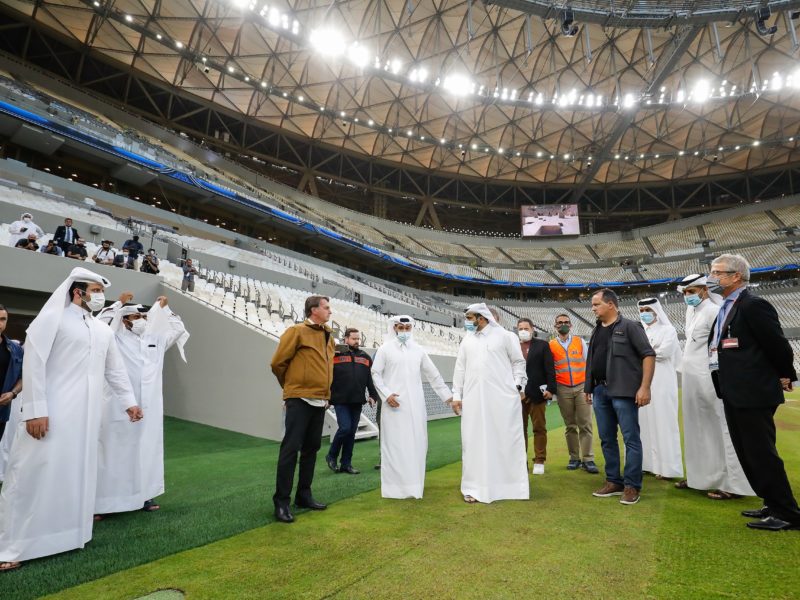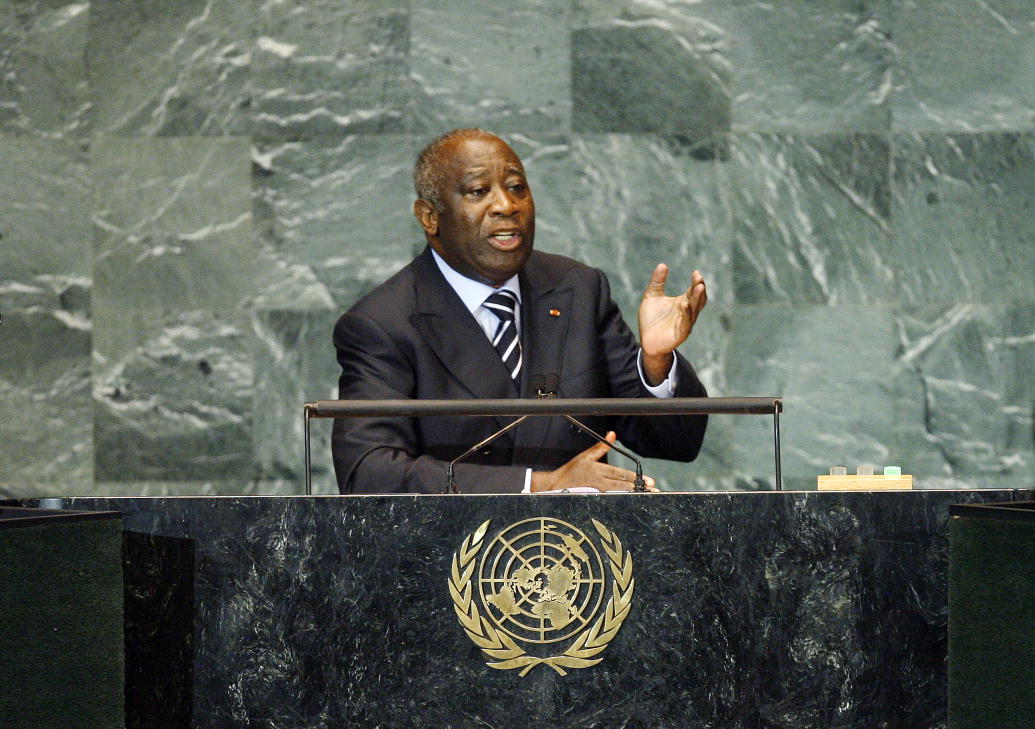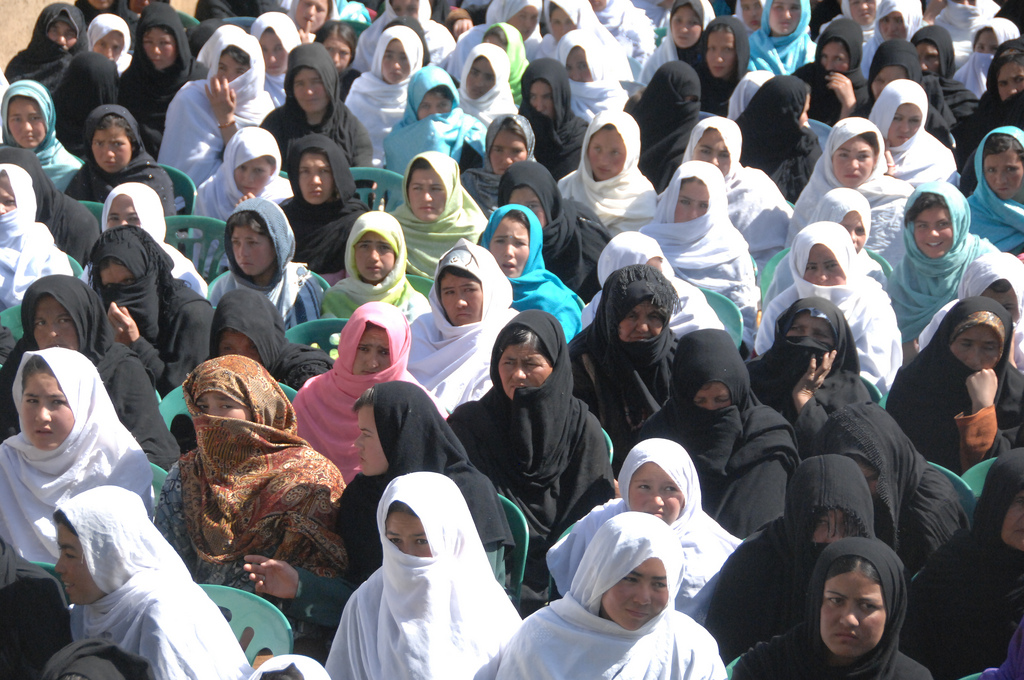By Pearce Edwards and guest contributors Christian Gläβel, and Adam Scharpf
The much-anticipated finals of the 2022 FIFA World Cup will take place on December 18. The match will represent the climax of one of the world’s largest sports mega-events—one that has attracted billions of television viewers and shattered rating records.
The host nation, Qatar, spared no expense in building competition venues and infrastructure for visitors, and promoting itself to foreign audiences. The quasi-independent Qatari newspaper, Gulf Times, proclaimed the World Cup an “achievement” that is “expected to be the best in history” and that offers a “successful and comfortable” experience for its millions of visitors and spectators. Human rights NGOs, by contrast, urged foreign journalists to look beyond this image of peace and prosperity the Qatari monarchy constructed ahead of the competition. How has the regime reacted to this scrutiny?
Our research on dictatorships’ response to the scrutiny they face when hosting mega-events such as the World Cup suggests host regimes will take two actions. First, in the weeks and months leading up to a mega-event, the regime will arrest and detain opposition activists. If left on the streets, these activists could denounce and embarrass a host regime during the event when foreign spectators, press, and dignitaries are present. Second, this campaign of repression will ease once the event begins, as the host regime rolls out the red carpet for visitors. With the streets cleared, the regime curates for visitors an enjoyable experience. A smooth and successful event thus bestows legitimacy on the hosts.
These two actions were on display in Argentina around its controversial hosting of the 1978 FIFA World Cup. At the time, a repressive military regime ruled the country, and faced a boycott campaign from human rights groups. To prevent its domestic critics from speaking out during the competition, the regime ramped up its use of enforced disappearances and killings in the months before the tournament. These acts of violence occurred in cities hosting matches, and in areas nearby the hotels reserved for foreign journalists.
With the streets cleared of potential troublemakers, visitors arriving in Argentina for the opening ceremonies saw a place “where order reigns” and in which citizens were “happy.” Foreign journalists received special treatment. Argentine barbeques, social events, vineyard trips, and polo matches were among the scheduled programming outside of match times. To sway less credulous reporters, the regime held a press conference on the first day of the tournament to show “evidence” that some journalists were the target of an anti-regime propaganda campaign by an Argentine domestic terrorist group. Acts of violence by the regime decreased during the tournament.
Though we lack the fine-grained data and declassified intelligence documents on Qatar that gave us insight into Argentina, there are indications the 2022 hosts have taken actions similar to their Argentine counterparts. In June, five months before the World Cup, Qatari authorities detained and deported activists who called attention to the plight of the country’s migrant workers. In August, dozens of protesters were similarly deported after expressing grievances over their treatment as migrant workers. Weeks before the opening ceremonies, a British activist claimed Qatari security forces had detained and interrogated him after a public protest against the regime’s policies toward the LGBTQ community.
Once the tournament opened, however, the host regime managed to secure at least some positive international coverage of its accomplishments. The Wall Street Journal described the World Cup as running “smoothly,” with only “isolated incidents of security overreach” amid a “delicate…cultural clash” with the West. Another outlet, Vox, reflecting on Qatar’s infrastructure projects, proclaimed that the regime “cares deeply about culture” without mentioning human rights until after describing the famous architects who designed these impressive civic structures. CNN also lauded the hosts for political reforms, and featured quotes about favorable treatment of migrant workers over the last decade. Other journalists cite Qatar’s “depth and beauty” and compare its human rights record favorably to developed democracies.
Are these accolades a reflection of Qatar’s actual human rights record or of their successful efforts to woo journalists? Reporter Oliver Kay of The Athletic documented a rare candid moment in which a colleague admitted to being swayed by Qatar’s efforts to impress foreign journalists:
“Last week in the media centre, I got chatting with a fellow journalist and we exchanged observations about the Qatari World Cup experience. ‘Brilliant,’ he said, citing the convenience, the weather, the food, the hotel, the lack of congestion and the friendliness he had encountered everywhere at every turn. He sounded almost evangelical about it, suggesting that, having come here with low expectations, he had seen the light.”
What lessons do Qatar in 2022 and Argentina in 1978 offer scholars and practitioners? The question is important, as dictatorships like these host an increasing share of sports mega-events. First, we suggest that observers—particularly journalists—remain skeptical of the positive image a dictatorial host constructs around a mega-event. Traveling to the host country may allow journalists needed access for critical reporting, but risks ensnaring them in the regime’s public relations campaign. Even if rooted in fact, regimes often deploy these campaigns to conceal or distract from ongoing human rights abuses. Second, international bodies that award the hosting of mega-events should recognize that hosting worsens human rights abuses in authoritarian countries. Without skepticism and scrutiny both before and during mega-events, dictators will take advantage of hosting to burnish their image on the global stage.
Pearce Edwards is a PVG permanent contributor and a postdoctoral fellow at the Institute for Politics and Strategy at Carnegie Mellon University. Christian Gläβel is a postdoctoral researcher working with Anita Gohdes at the Hertie School’s Centre for International Security in Berlin. Adam Scharpf is an assistant professor at the Department of Political Science at the University of Copenhagen (UCPH).
Note: the authors would like to dedicate this post to Grant Wahl, a longtime US soccer journalist who remained critical of the Qatari regime throughout his time covering World Cup. Wahl collapsed in the press box during the December 9 quarterfinal between Argentina and the Netherlands and later died.







